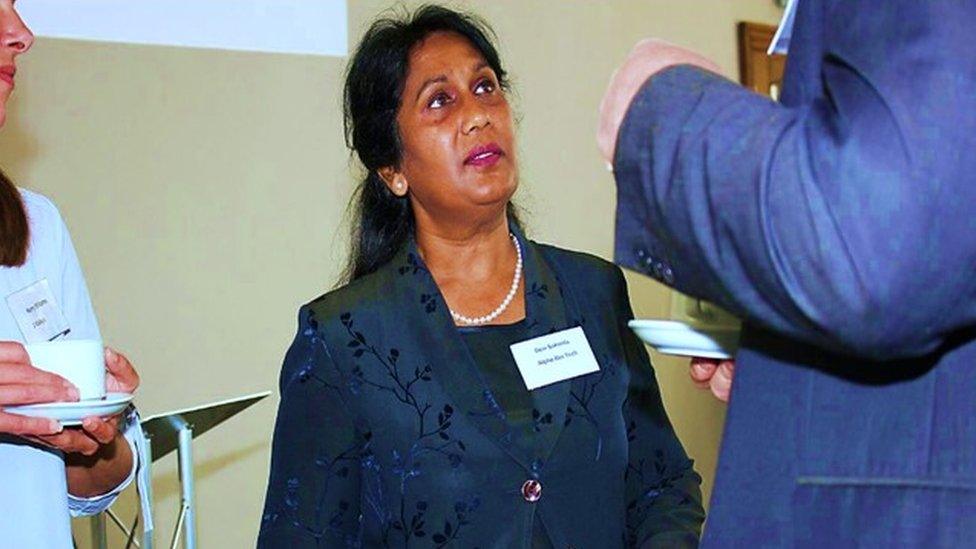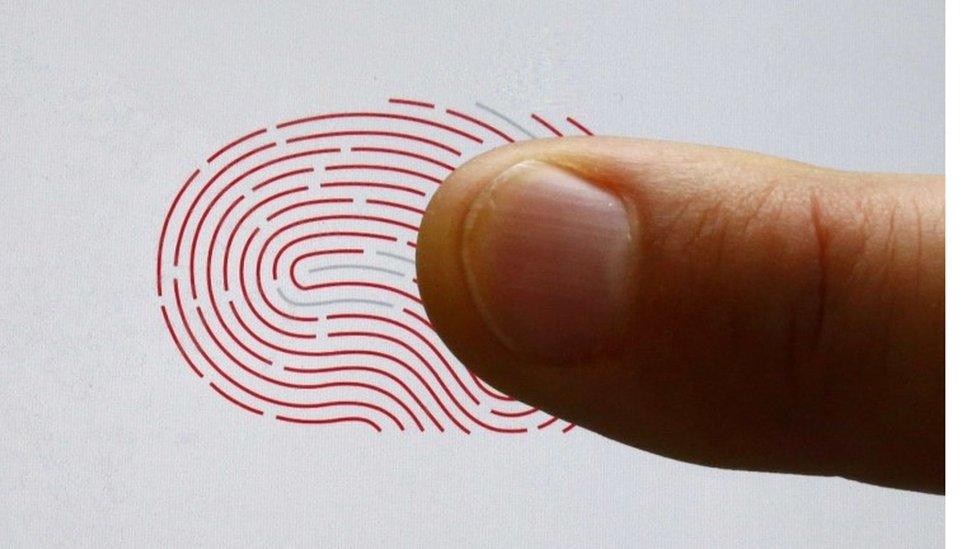'Key-free future' revolution set to take off in Ebbw Vale
- Published
Plans to create fingerprint technology hub in Blaenau Gwent
A hub for developing technology which allows fingerprints to secure property could be set up in Blaenau Gwent.
Founder Devi Sohanta said it has the potential to "change how we live" and be in "every home".
Connective Touch locks use biometrics, which recognise characteristics such as irises or faces, not keys or fobs.
Ms Sohanta has created a social enterprise, allowing people with learning disabilities and the long-term unemployed to manufacture them.
A factory has been set up in Ebbw Vale and she wants to build the industry up "from ground zero" in the area, teaching schoolchildren skills to further develop the technology.
It can be used in buildings ranging from sheltered accommodation to hospitals, while Ms Sohanta is looking at potential uses in homes, such as on cupboards to stop children opening them.
"In the 1980s, the manufacturer of Amstrad said they wanted a computer in every home," she said.
"That happened, and I want this to have a similar impact."
She had the idea after working with vulnerable groups, seeing the need to better control who accessed buildings such as women's refuges.

Devi Sohanta wanted to set up in an area where a social enterprise could provide jobs to long-term unemployed and disabled people
While biometrics is not a new field, research and development was difficult as Ms Sohanta found there was little university education on applying it to products.
She also found many security system installers, suppliers and distributors did not know enough about it.
In 2013, she contacted Community Lives, an organisation helping people with learning difficulties in Swansea.
The group's Rick Wilson said he was "captivated by her vision" and the system was installed, as a trial, in homes of people who struggled with keys.
Social enterprise the Alpha Trust then helped set up The Assemblers - teaching 22 people with learning disabilities how to manufacture the product.
In September 2016, it was installed in 18 Newydd Housing Association properties in Pontypridd.
'James Bondy'
Ms Sohanta will now take on 20 people in Ebbw Vale over the next year and work with local businesses in manufacturing, distributing and installing the product.
"I wondered why biometrics couldn't be as simple for people to use everyday?" she said.
"I want it (the product) to support people in a disadvantaged area under a charitable trust, helping those who have not worked for a long time."
Since 2010, Ms Sohanta has invested £360,000 creating the technology so it is easily assembled.
"Some may think its scary and James Bondy but it's the safest form of security, as nobody can steal your fingerprint," she added.
Blaenau Gwent council's BG Effect facilitation project, external helped her set-up and lead officer Moe Forouzan said it is "always keen to support an innovative technology business specialising in biometrics".
- Published19 February 2016

- Published24 January 2017
